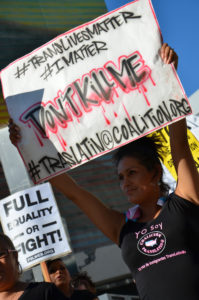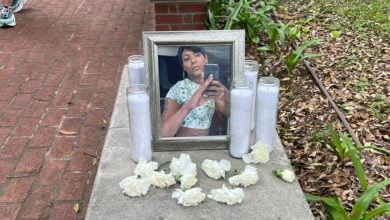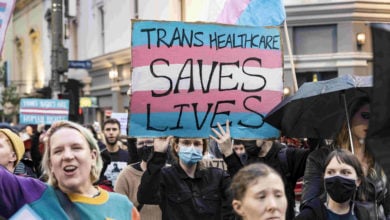In November 2009, voters in Houston, Texas, elected Annise Parker as mayor, making it the biggest U.S. city to elect an openly gay mayor.
Five years later, the City Council passed the Houston Equal Rights Ordinance, with the mayor’s backing, which banned discrimination in employment, housing and access to public accommodations on 15 bases, including sexual orientation and gender identity. But then, in 2015, right-wing bigots launched a major and well-funded campaign that resulted in voters overturning the ordinance.
The battle in Houston was an important moment that foretold the wave of reactionary laws to come. It symbolized the current moment for the LGBTQ community: one in which big advances for equality have been made, but are under constant threat, and there is still a long way to go.
How did the right-wing reverse the Houston ordinance? Even though it was a wide-ranging anti-discrimination law, their fear-mongering campaign focused on one issue: men being able to enter women’s restrooms. This turned the tide against the measure.
That same script has now been played out across the country. It is clear that the right wing is succeeding in using anti-trans fear and bigotry, revolving around bathroom access, to overturn progressive laws and to pass reactionary legislation.
They have done so in a period when overall support for LGBTQ people is at an all-time high. But because the movement has not succeeded in combating the bigotry and confusion around this issue, LGBTQ rights have suffered a series of losses in the wake of the historic legalization of same-sex marriage in June 2015.
The right wing is taking advantage of the fact that understanding of and support for trans and gender nonconforming people—though having made significant strides—is far behind the acceptance of non-hetero sexual orientations. They have used this opening to overturn progressive protections for all LGBTQ people and all working people.
North Carolina’s HB2 has been dubbed the “bathroom bill” but its reach goes far beyond that. The state legislature took up the bill to overturn the city of Charlotte’s nondiscrimination ordinance that included lesbian, gay and transgender people, and to prevent other localities from extending similar protections.
HB2 is also a capitalist counter-offensive against the rising workers’ movement. The bill prohibits local governments from raising the minimum wage above that of the state and passing certain anti-discrimination employment practices.
Progressive people must completely reject this false, right-wing anti-trans campaign and stand strongly and militantly in defense of trans people, who face rates of suicide, murder, unemployment and homelessness beyond that of any other oppressed group.
It is critical to educate people about all aspects of these reactionary bills, and unite people of all backgrounds against them.
 We must demand federal legislation barring discrimination nationwide. While this is far short of liberation, it is a reform of the capitalist system that should be demanded. It will be those most at risk, in smaller cities and towns, and in more isolated areas, who will suffer most without decisive and lasting action on the federal level.
We must demand federal legislation barring discrimination nationwide. While this is far short of liberation, it is a reform of the capitalist system that should be demanded. It will be those most at risk, in smaller cities and towns, and in more isolated areas, who will suffer most without decisive and lasting action on the federal level.
The struggle for marriage equality took place state-by-state, court-by-court before making its way to the Supreme Court. The fight over discrimination will play out in even more arenas—on the town, city, county and state level.
It is only through independent organizing and struggle among LGBTQ people and all sectors of the working class, rather than reliance on the Democratic Party, that these gains can be made.
Winning progressive reforms, changing and shaping popular consciousness and ultimately achieving liberation cannot be achieved in isolation from other struggles.
The right wing has a clear strategy of rolling back the clock on every progressive reform they possibly can by taking advantage of prejudice, fear and by magnifying divisions. To effectively fight back requires a strategy that does the opposite: that unites people of all walks of life who are struggling under capitalism and have an interest in uniting together to win reforms. Taking up the demands and upholding the struggles of the most oppressed and vulnerable sectors of society makes that movement stronger, not weaker.
The right wing are “holistic” bigots—their hatred is not reserved for just one group. They must be countered by a holistic approach on the people’s side: to fight side-by-side for everyone’s rights, with unequivocal positions for equality and an unbreakable spirit of solidarity. That sort of movement will win important reforms, but also pave the way for a struggle to win a whole new system.






